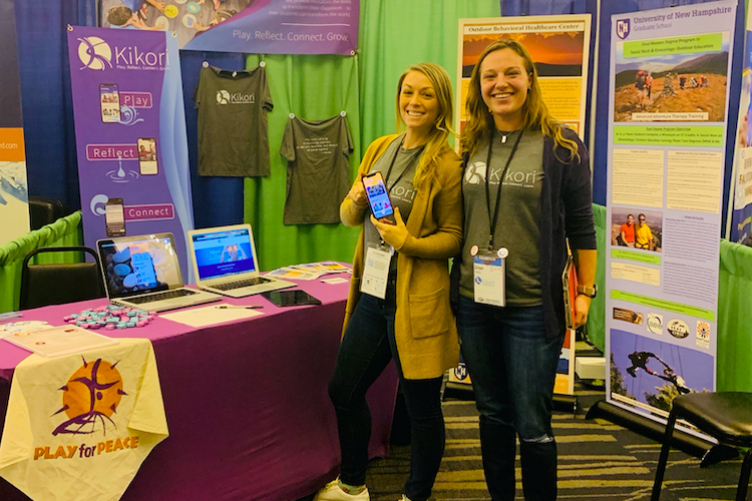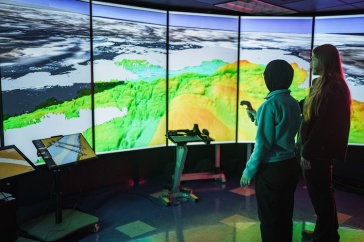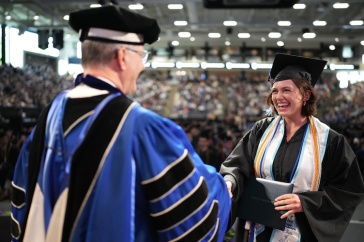
Kikori cofounders Kendra Bostick (L) and Bryn Lottig.
An app designed for educators to help them use experiential and social-emotional learning activities in their classrooms took first place in the 32nd Holloway Competition held earlier this month. This year, a twist on the annual student challenge was presented by the coronavirus pandemic, which led to the event being held virtually. Twenty teams competed for cash prizes totaling more than $27,000.
The $10,000 first-place prize went to Kikori, an app that was the inspiration of graduate students Kendra Bostick, Bryn Lottig, Bhavya Wadhwa and Gayathri Venkatasrinivasan. As a social worker for several years, Bostick often worked with teachers to address concerns they had with their students. That background let to Kikori, with the idea that using experiential education — learning by doing — can help alter behavior and improve academics, student well-being, and school climate.
“You worked through this complicated process and you were able to adapt. I really think that kind of agility is the hallmark of a successful entrepreneur.”
ecoText, Inc., which helps reduce the cost of college textbooks, took second place and won its founders $7,500 as well as the $1,000 Peoples Choice prize. Conceived by Dylan Wheeler, (College of Engineering and Physical Sciences and College of Life Sciences and Agriculture - COLSA), Nelson Thomas (College of Liberal Arts) and Rachel Yee (COLSA), ecoText saves students money by eliminating the high costs of traditional textbooks by working closely with classrooms, departments, and colleges. According to the founders, students can save up to 80 percent of the cost of traditional textbooks.
The team of Mikey Pasciuto, Daniel Marek and Evan Gwynne Davies won third place and $5,000 with Scrapp, a free game-based smartphone application that educates consumers and rewards individuals and institutions for recycling correctly. Utilizing the theory of behavioral economics, the Scrapp app enables consumers to change their behavior around everyday recycling activities by supporting consumers with immediate, positive feedback. Marek and Davies are civil engineering majors and Pasciuto is a mechanical engineering major with a minor in sustainability.
In a remote message to all entrants, Deborah Merrill-Sands, dean of the Peter T. Paul College of Business and Economics, told students she was impressed with their ability to pivot during these challenging times. “You worked through this complicated process and you were able to adapt. I really think that kind of agility is the hallmark of a successful entrepreneur.”
For the first time, all six finalists were coached by the ECenter’s (Entrepreneurship Center) Ian Grant, who worked with first-place winners ecoText for the last three years, Kikori since September 2019 and Scraap since October 2019. Grant, executive director of the ECenter, noted there were a minimum of eight Zoom meetings with each of the six teams to prepare for the first-ever remote competition.
Open to all students in all majors at UNH, Plymouth State University, Keene State College and Granite State College, the challenge recognizes students who conceptualize, develop and pitch the most compelling proposals to bring a product to market. After multiple stages of the competition, the final teams present their ideas during the championship round in May.
The Holloway Competition was established in 1988 by Anna Grace Holloway, her son Scott and daughter, Debra, to honor her husband and their father, Paul J. Holloway. To date, thousands of students have presented their business plans, resulting in 399 finalists.
A recent gift set up by the Holloways through estate planning ensures the continuance of the competition for future students.
-
Written By:
Jody Record ’95 | Communications and Public Affairs | jody.record@unh.edu
















































